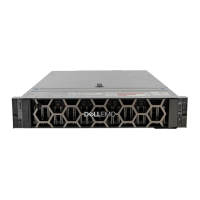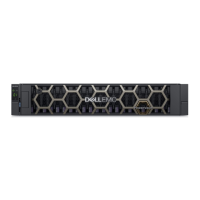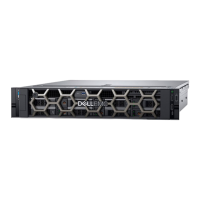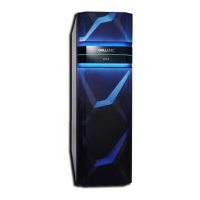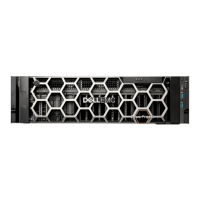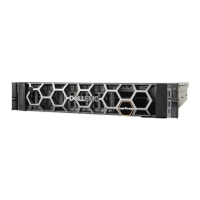Number Severity Description/Recommended actions
Recommended actions:
• No action is required.
73 Info. The two controllers are communicating with each other and cache redundancy is enabled.
Recommended actions:
• No action is required.
74 Info. The FC loop ID for the indicated disk group was changed to be consistent with the IDs of other disk groups.
This can occur when disks that constitute a disk group are inserted from an enclosure having a dierent FC
loop ID.
This event is also logged by the new owning controller after disk group ownership is changed.
Recommended actions:
• No action is required.
75 Info. The indicated volume’s LUN (logical unit number) has been unassigned because it conicts with LUNs
assigned to other volumes. This can happen when disks containing data for a mapped volume have been
moved from one storage system to another.
Recommended actions:
• If you want hosts to access the volume data in the inserted disks, map the volume with a dierent LUN.
76 Info. The controller is using default conguration settings. This event occurs on the rst power up, and might occur
after a rmware update.
Recommended actions:
• If you have just performed a rmware update and your system requires special conguration settings, you
must make those conguration changes before your system will operate as before.
77 Info. The cache was initialized as a result of power up or failover.
Recommended actions:
• No action is required.
78 Warning The controller could not use an assigned spare for a disk group because the spare’s capacity is too small.
This occurs when a disk in the disk group fails, there is no dedicated spare available and all global spares are
too small or, if the dynamic spares feature is enabled, all global spares and available disks are too small, or if
there is no spare of the correct type. There may be more than one failed disk in the system.
Recommended actions:
• Replace each failed disk with one of the same type (SSD, enterprise SAS, or midline SAS) and the same or
greater capacity. For continued optimum I/O performance, the replacement disk should have performance
that is the same as or better than the one it is replacing.
• Congure disks as dedicated spares or global spares.
– For a dedicated spare, the disk must be of the same type as the other disks in the disk group and at
least as large as the smallest-capacity disk in the disk group, and it should have the same or better
performance.
– For a global spare, it is best to choose a disk that is as big as or bigger than the largest disk of its type
in the system and of equal or greater performance. If the system contains a mix of disk types (SSD,
enterprise SAS, or midline SAS), there should be at least one global spare of each type (unless
dedicated spares are used to protect every disk group of a given type).
79 Info. A trust operation has completed for the indicated disk group.
Events and event messages 89

